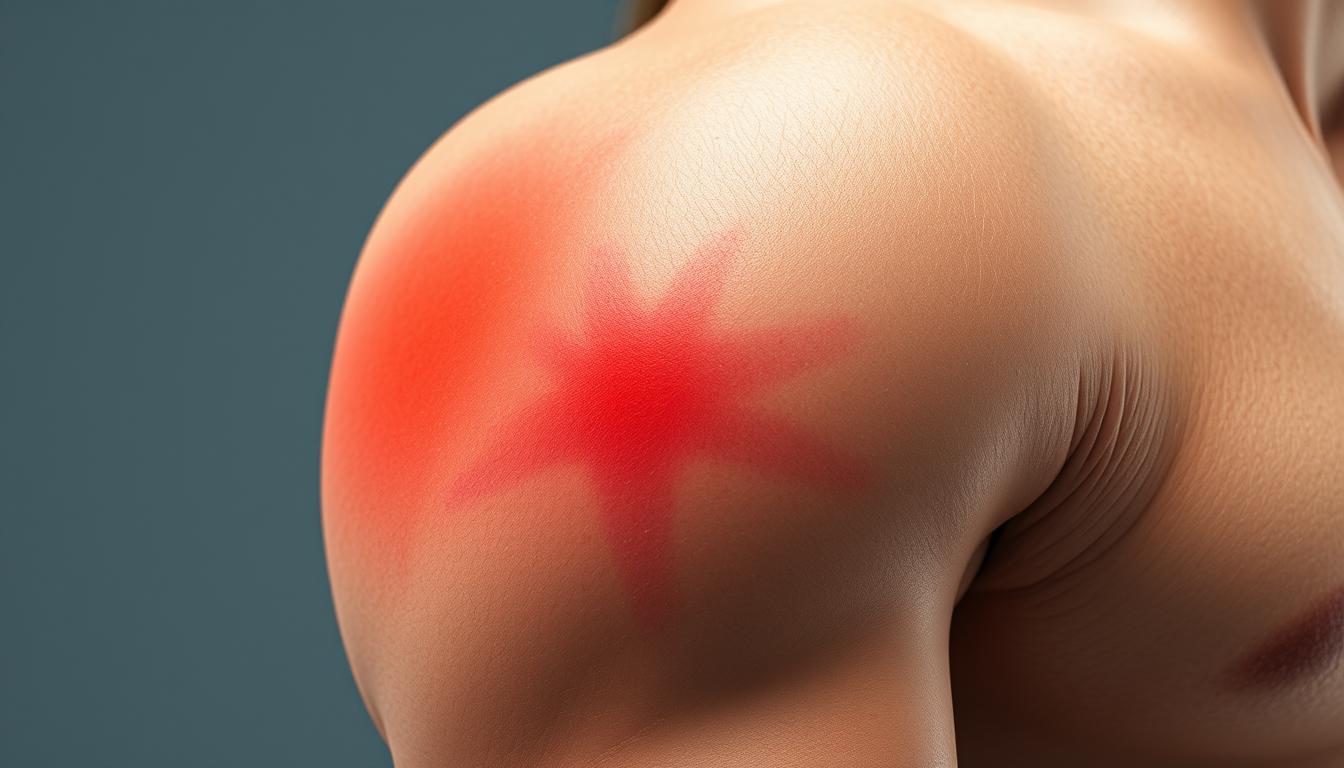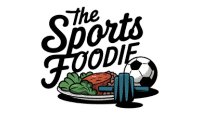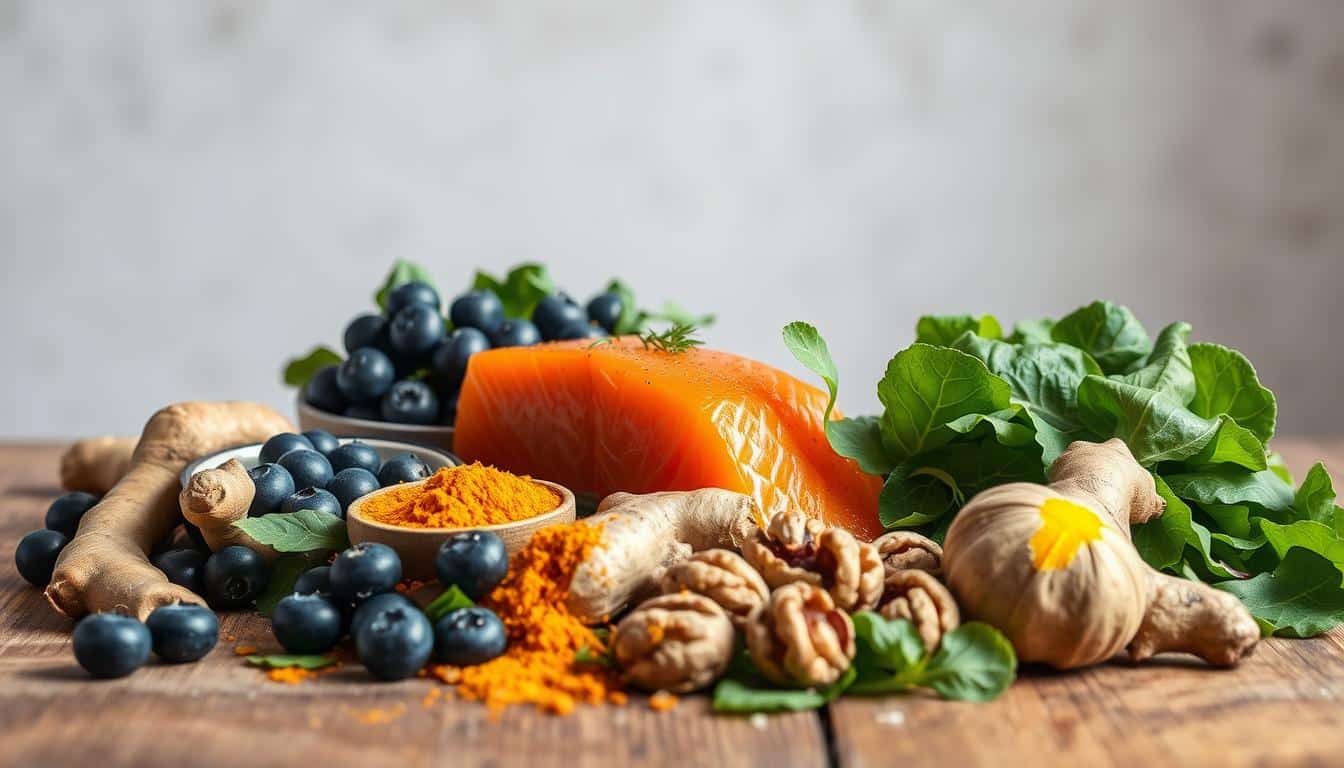What you eat can make or break your athletic performance. If you’re looking to recover faster and train harder, your diet plays a huge role. Inflammation is a natural response to intense workouts, but too much can slow down muscle repair and leave you feeling sore.
By choosing the right foods, you can keep inflammation in check and boost your recovery. Think of options like fish, vegetables, and nuts—they’re packed with nutrients that help your body heal. These game-changing choices can reduce post-workout fatigue and get you back in the game sooner.
Ready to fuel your body for peak performance? Keep reading to discover the best foods to add to your plate today!
What is Inflammation and Why It Matters for Athletes
Inflammation is your body’s way of protecting itself, but it can also hold you back. It’s a natural response to stress, injury, or intense workouts. However, when it becomes chronic, it can lead to serious health issues and slow down your recovery.

Understanding Acute vs. Chronic Inflammation
Acute inflammation is your body’s short-term response to injury or stress. Think of a cut healing or sore muscles after a tough workout. It’s a sign your body is repairing itself. On the other hand, chronic inflammation is like a fire alarm that won’t turn off. It’s linked to conditions like heart disease, diabetes, and even Alzheimer’s.
For athletes, chronic inflammation can be a career-ending risk. It’s not just about post-marathon soreness—it’s the daily joint ache and fatigue that adds up over time.
How Inflammation Impacts Athletic Performance
Inflammation can wreak havoc on your performance. Here’s how:
- Slower recovery: Your muscles take longer to heal, leaving you feeling drained.
- Joint pain: Persistent discomfort can make training unbearable.
- Fatigue: Your energy crashes might mean your body is fighting chronic inflammation.
Testing for CRP (C-reactive protein) levels can give you proof of inflammation in your body. And while NSAIDs like ibuprofen might offer quick relief, overusing them can harm your gut health and reduce training adaptations in the long run.
Sleep is another key factor. Getting 7-9 hours of quality rest can reduce inflammation and help you recover faster. Remember, your body’s response to stress can either help or hurt your performance—so take inflammation seriously.
Foods That Cause Inflammation
Your diet can either fuel your performance or sabotage your recovery. While some choices help your body heal, others can trigger unwanted inflammation. Knowing what to avoid is just as important as knowing what to eat.
Processed and Fried Foods
Processed foods like microwave popcorn and margarine often contain trans fats. These unhealthy fats are linked to chronic inflammation. Fried options, such as French fries, are even worse. The high heat used in frying creates harmful compounds that can damage your cells.
Here’s a quick tip: Always check labels for “partially hydrogenated oils.” These are a red flag for trans fats. Instead of reaching for fried snacks, try baked sweet potato fries. They’re just as tasty but much healthier.
Sugar-Sweetened Beverages
Soda and sports drinks might seem refreshing, but they’re packed with sugar. One can of soda contains 39 grams of sugar—that’s 10 teaspoons! Even “healthy” snacks like protein bars can be loaded with hidden sugars.
Watch out for sneaky sugar aliases like “cane crystals” or “evaporated cane juice.” Swap sugary drinks for water infused with lemon or cucumber. Your body will thank you.
Red and Processed Meats
Red meat and processed options like pepperoni pizza or sausages are high in saturated fats. These fats can increase inflammation and harm your heart. Grilling meats at high temperatures also creates cancer-linked compounds.
Instead of a burger, try a grilled portobello mushroom. It’s a flavorful, plant-based alternative that’s much kinder to your body.
| Harmful Food | Healthier Swap |
|---|---|
| French fries | Baked sweet potato fries |
| Soda | Water with lemon or cucumber |
| Burger | Grilled portobello mushroom |
Lastly, don’t forget about alcohol. It’s a double whammy—it increases inflammation and disrupts your sleep. If you’re serious about recovery, it’s best to limit your intake.
Think of your body like a race car. Would you put cheap fuel in it? By avoiding these inflammatory choices, you’ll keep your engine running smoothly and recover faster.
Anti-Inflammatory Foods for Athletes
Fueling your body with the right nutrients can transform your recovery and performance. The choices you make at mealtime can help reduce soreness, speed up healing, and keep you at your best. Let’s dive into the top picks that can make a real difference.
Fatty Fish Rich in Omega-3s
Omega-3 fatty acids are like a cool breeze for your muscles after a tough workout. They help reduce inflammation and support faster recovery. Some of the best sources include salmon, mackerel, and sardines. These fish are packed with healthy fats that your body loves.
If you’re not a fan of fish, try chia seeds or walnuts. They’re great plant-based options. Adding a serving of these to your daily meals can make a big impact on how you feel.
Colorful Fruits and Vegetables
Eating a rainbow of produce ensures you get a variety of antioxidants and nutrients. Bell peppers, kale, and strawberries are excellent sources of vitamin C, which helps repair tissues. The more colors on your plate, the better.
Spinach is another powerhouse. Toss it into your post-workout smoothie for an easy win. These choices not only taste great but also keep your body strong and ready for action.
Nuts, Seeds, and Healthy Oils
A handful of nuts or seeds daily can work wonders. Almonds, flaxseeds, and chia seeds are rich in fiber and healthy fats. They’re perfect for snacking or adding to meals.
When it comes to oils, choose olive oil over processed vegetable oils. It’s a healthier option that supports your overall well-being. Drizzle it on salads or use it for light cooking.
| Food | Benefit |
|---|---|
| Salmon | Rich in omega-3s |
| Bell Peppers | High in vitamin C |
| Almonds | Packed with healthy fats |
Making these simple swaps can help you recover faster and perform better. Start small, and you’ll notice the difference in no time.
The Role of Omega-3 Fatty Acids in Reducing Inflammation
Think of omega-3s as the oil that keeps your engine running smoothly. These healthy fats are essential for reducing inflammation and helping your body recover faster. Whether you’re hitting the gym or training for a marathon, omega-3s can make a big difference in how you feel and perform.
Best Sources of Omega-3s for Athletes
Not all omega-3s are created equal. The most effective forms, EPA and DHA, are found in fatty fish like salmon and sardines. Just 3.5 ounces of salmon provides 2,000mg of omega-3s—enough to keep inflammation at bay. For plant-based options, flaxseeds and walnuts contain ALA, which your body converts into EPA and DHA, though less efficiently.
Here’s a quick guide to the best sources:
| Source | Omega-3 Content |
|---|---|
| Salmon | 2,000mg per 3.5oz |
| Sardines | 1,480mg per 3.5oz |
| Walnuts | 2,570mg per ounce |
How Omega-3s Support Recovery and Performance
Omega-3s work like natural aspirin, reducing inflammation and easing pain. They help lubricate your joint hinges, making movements smoother and less painful. Research shows athletes who consume omega-3s experience 22% less soreness after intense workouts.
Here’s how to make the most of them:
- Eat two servings of fatty fish weekly.
- Pair omega-3s with vitamin D for better absorption.
- Choose small fish like sardines to avoid mercury.
For vegans, algae supplements are a great alternative. Add a sprinkle of flaxseeds to your smoothie or try sardine toast with avocado for a quick, nutrient-packed meal.
Polyphenols and Antioxidants: Natural Inflammation Fighters
Nature has its own way of helping your body heal and thrive. Polyphenols and antioxidants are powerful compounds found in many plant-based foods. They work together to reduce inflammation and speed up recovery, making them essential for active individuals.
Foods High in Polyphenols
Polyphenols are abundant in colorful fruits and vegetables. Berries like blueberries and strawberries are packed with these compounds. Tart cherry juice is another standout—studies show it reduces muscle pain and speeds recovery.
Don’t forget about beverages. Green tea is a great source of polyphenols and can be a refreshing post-workout drink. Even dark chocolate, in moderation, offers a tasty way to get your daily dose.
Here are some polyphenol powerhouses to add to your diet:
- Berries (blueberries, strawberries, raspberries)
- Green tea
- Dark chocolate (70% cocoa or higher)
- Spices like cloves, cinnamon, and turmeric
The Benefits of Antioxidants for Athletes
Antioxidants protect your cells from damage caused by intense workouts. They neutralize free radicals, which can lead to inflammation and slower recovery. Eating antioxidant-rich foods within 30 minutes post-workout can maximize their benefits.
Turmeric, for example, contains curcumin, a compound known for its anti-inflammatory properties. Pair it with black pepper to boost absorption. Ginger and cayenne are other spices that can add flavor and healing power to your meals.
Here’s a quick tip: Frozen berries are just as nutritious as fresh ones and often more affordable. Add them to smoothies or oatmeal for an easy antioxidant boost.
For a simple, anti-inflammatory smoothie, blend:
- 1 cup frozen berries
- 1 handful spinach
- 1 tsp turmeric
- 1 cup almond milk
- 1 tbsp chia seeds
This combination is packed with polyphenols and antioxidants to help you recover faster and perform better.
How to Build an Anti-Inflammatory Meal Plan
Planning your meals with the right ingredients can be a game-changer for your recovery and performance. A well-structured diet helps reduce inflammation, keeps your energy levels steady, and supports faster healing. Let’s break it down into simple steps you can start today.
Sample Breakfast, Lunch, and Dinner Ideas
Start your day with a nutrient-packed breakfast. Try overnight oats made with chia seeds, almond milk, and a handful of berries. This combo is rich in fiber and healthy fats, keeping you full and energized.
For lunch, a Mediterranean-inspired bowl works wonders. Combine quinoa, grilled salmon, spinach, and a drizzle of olive oil. This meal is loaded with omega-3s and vegetables to fight inflammation.
Dinner can be simple yet effective. Roast a tray of sweet potatoes, broccoli, and chickpeas. Add a side of probiotic-rich Greek yogurt for extra gut health benefits.
Snacks and Post-Workout Recovery Foods
Snacking smart is key to staying on track. A handful of almonds or walnuts provides a quick dose of healthy fats. Pair them with a piece of fruit for a balanced snack.
After a workout, focus on recovery. A smoothie with spinach, frozen berries, and a scoop of protein powder is perfect. For a savory option, try sardines on whole-grain toast. They’re budget-friendly and packed with omega-3s.
Hydration is just as important. Swap sugary drinks for herbal teas or water infused with lemon and cucumber. These choices keep you hydrated without the added sugar.
Need more ideas? Check out our guide on high-energy breakfast to kickstart your day.
With these tips, you’ll have a solid foundation for a meal plan that supports your goals. Start small, and you’ll see the benefits in no time.
Conclusion
Your next meal could be the key to better recovery and stronger performance. Start by focusing on simple swaps—choose salmon over a burger, berries over candy, and olive oil over processed fats. Consistency matters more than perfection, so aim for progress, not perfection.
Take the 30-day challenge: swap one inflammatory choice for a healthier option. Skip the post-game burger and fuel your body with nutrient-packed alternatives. Small changes add up to big results over time.
Ready to take action? Your next meal starts now! Download our printable grocery list to make shopping easier. And stay tuned for our next topic: best recovery stretches to keep you moving smoothly.
Remember, smart fueling leads to harder domination. You’ve got this!


